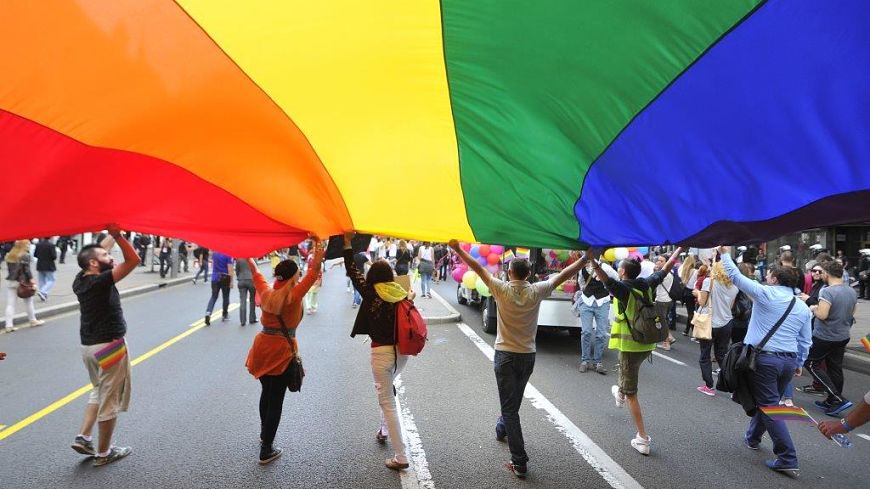Bisexuality is still viewed as taboo by many. All too often, it is patronisingly dismissed as a ‘fad’ or worse, a ‘lifestyle choice’. Men say it when they’re actually just gay, and women say it because they think it makes them more sexy, more exotic, more attractive to the opposite sex. It proves more difficult for people to get their heads around than same-sex attraction, and this results in a surfeit of beliefs about bisexual people that nobody can be bothered to fact check. Bisexuals are predatory, they are promiscuous, they are blurring boundaries and making everyone uncomfortable in the process. And it must be all about sex, and solely sex, because that’s what it says in the word. Bisexuality is purely ‘sexual’.
This trivialisation of a sexuality — this widespread assumption that bisexual people are simply sex-crazed — means that people feel able to speak about bisexuality in a way they wouldn’t a monosexuality. As soon as they find out I’m bisexual, people I hardly know are suddenly comfortable asking personal questions we both know they otherwise wouldn’t. I remember my first-year flatmates thinking it was perfectly acceptable to ask intimate questions about my sex-life, about whether I preferred sleeping with men or women, about whether I ‘topped’ or ‘bottomed’ in a lesbian situation. Unsurprisingly, all of these questions were about sex. People don’t ask me about the romantic aspect, because they don’t want to acknowledge it. My sexuality is purely a curiosity to them; it is nothing more than either a sexy conversation topic or worse, a delusion of mine which they feel the need to correct.
Bisexual people are not taken seriously. They are told ‘to choose’ between men and women, to grow up, to get over themselves. People are so obsessed with labelling other people that they happily erase someone else’s identity. In a relationship with a male partner, I am considered straight; were I dating a woman, people would view me as a lesbian. People assume that I would cheat on my boyfriend, purely because I like more than one sex.
Most hurtfully, Bisexuals experience a ‘double discrimination’, with biphobia being the dirty secret of the LGBT community. Bisexual people have their sexuality challenged and erased in a community in which they are supposed to feel supported and understood. My gay friends jokingly refer to me as hetero, at the same time my heterosexual friends are calling me gay. Neither is true and yet it’s considered an acceptable joke to make. In painfully ironic fashion, in the summer, I stood in the midst of Brighton Pride while my friend’s boyfriend drunkenly shouted at me, repeatedly arguing that bisexuality wasn’t real and that I needed to stop ‘attention-seeking’. I had gone out to celebrate all of the LGBT community but was somehow left feeling ashamed, because someone was trying to force me back into a label I’ve never been comfortable with.
As a teenager, I imagined coming out would be liberating, that I’d finally be able to be exactly who I was. What I found was that, even in a community that is meant to include people like myself, there were people trying to categorise me as something I am never going to be. The only way to solve this issue is information. The more people learn about bisexuality, the less taboo it will seem, and the more people will understand that it is valid and worthy of the same respect as any other sexuality.
My sexuality is not a choice. It is certainly not your choice. And, by the way, if it was a choice, I would still choose to be bisexual. I love that I can love anybody, irrespective of their sex. And I will not call myself something else because it makes you feel better.
Allegra Goodwin
(Image courtesy of Council of Europe)

